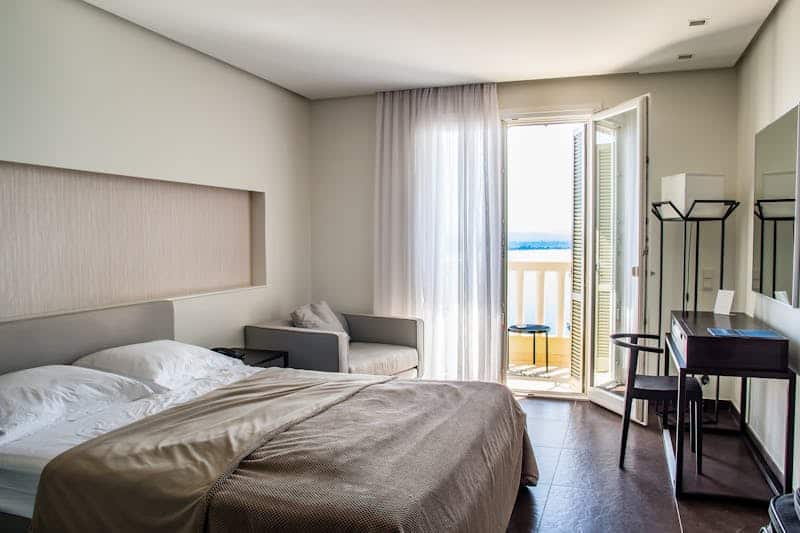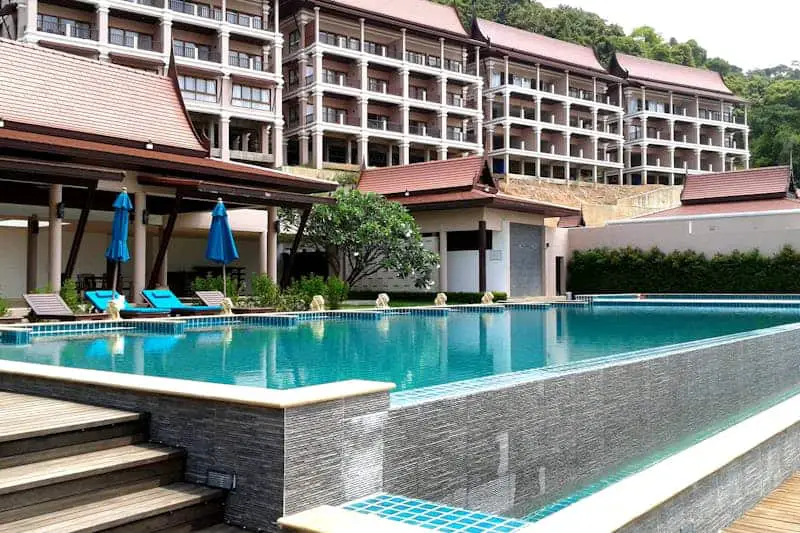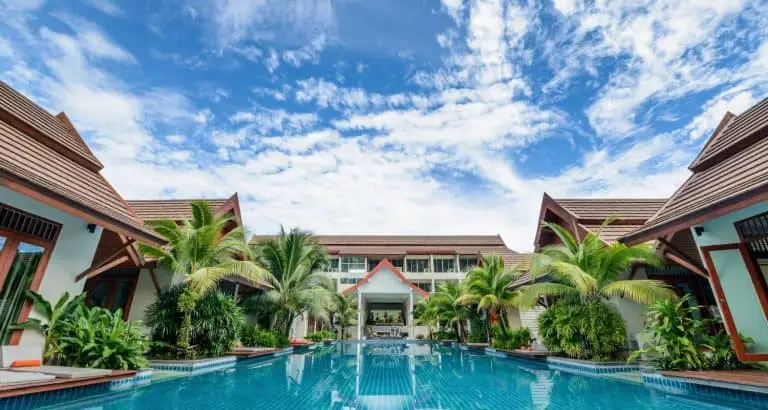Can You Buy a Hotel Room Permanently? A Comprehensive Guide
Have you ever dreamed of owning a luxurious hotel room as your permanent residence? The idea of having a cozy, well-maintained space with access to world-class amenities and services can be incredibly alluring.
If you’re short on time, here’s a quick answer to your question: Yes, it is possible to buy a hotel room permanently, but the process and options vary depending on the hotel and location.
In this comprehensive article, we’ll explore the concept of buying a hotel room permanently, the different ownership models available, the pros and cons, and the factors to consider before making such a significant investment.
Whether you’re a frequent traveler, a retiree seeking a hassle-free lifestyle, or simply curious about this unique real estate opportunity, this guide will provide you with valuable insights and information.
Understanding Hotel Room Ownership Models
When it comes to buying a hotel room permanently, there are several ownership models to consider. Each model offers a unique set of benefits and drawbacks, catering to different investment goals and preferences. Let’s dive into the most common options:
Condo-Hotel Units
Condo-hotels, also known as condotels, are a hybrid between traditional hotels and residential condominiums. In this model, you purchase a unit within the hotel property, which entitles you to exclusive ownership and usage rights.
When not using the unit yourself, you can opt to place it in the hotel’s rental program, generating income from guests who book it. According to Statista, the global average daily rate for condo-hotels was around $180 in 2020, highlighting the potential for lucrative returns. 😎

Timeshare Ownership
Timeshare ownership is a more affordable option that allows you to purchase the right to use a specific hotel room or suite for a predetermined period each year. This model is popular among those who prefer vacationing at the same destination annually.
However, timeshares often come with ongoing maintenance fees and can be challenging to resell or transfer ownership. According to ARDA, the timeshare industry generated over $10 billion in revenue in 2021, showcasing its enduring appeal. 🏖️
Fractional Ownership
Fractional ownership is a unique model that allows multiple individuals or parties to share ownership of a single hotel room or suite. Each owner is allocated a specific number of days or weeks per year to use the property.
This model offers the benefits of ownership without the full financial commitment of whole ownership. However, coordinating usage schedules with co-owners can be a challenge. Recent industry reports has noted the growth of the global fractional ownership market.
Fun fact: Did you know that some luxury hotels offer fractional ownership packages that include access to exclusive amenities like private clubs, concierge services, and even private jets? Talk about living the high life! 🛩️
Whole Ownership
The most straightforward (and expensive) option is whole ownership, where you purchase a hotel room or suite outright. This model grants you complete control and flexibility over the property, allowing you to use it as a personal vacation home or generate income through rental programs.
However, the upfront costs and ongoing maintenance expenses can be substantial. According to TravelPulse, the average cost of a hotel room in the U.S. reached $654 per night in 2022, highlighting the significant investment required for whole ownership. 💰
Ultimately, the choice of ownership model depends on your financial goals, lifestyle preferences, and desired level of involvement in property management.
Whether you’re seeking a vacation home, a passive investment, or a unique real estate opportunity, understanding these models is crucial in making an informed decision about permanently owning a hotel room. Don’t hesitate to consult with professionals in the field to ensure you make the best choice for your needs.
Pros and Cons of Buying a Hotel Room Permanently
Advantages of Hotel Room Ownership
Owning a hotel room permanently can be a dream come true for frequent travelers or those seeking a second home in a prime location.
One of the biggest perks is the convenience and luxury of having a fully furnished and serviced accommodation available at your fingertips. No more worrying about booking accommodations or dealing with housekeeping – you can simply arrive and enjoy the amenities and services offered by the hotel. 🏨
Another significant advantage is the potential for investment growth. Hotel condominiums can appreciate in value over time, especially in popular tourist destinations or prime real estate locations. This means that not only do you have a place to stay, but your investment could also yield financial returns in the long run. 💰
Additionally, owning a hotel room can provide access to exclusive amenities and privileges. Many hotels offer owners-only perks, such as discounted rates at other properties, priority reservations, and access to private facilities or events. This can make your hotel room ownership even more rewarding and enjoyable. 🎉

Potential Drawbacks and Considerations
While hotel room ownership has its advantages, it’s essential to consider the potential drawbacks and challenges.
One significant concern is the cost. Purchasing a hotel room can be a substantial investment, often ranging from hundreds of thousands to millions of dollars, depending on the location and property.
Moreover, ongoing fees and maintenance costs can add up quickly. Hotel owners are typically responsible for paying annual fees, which cover expenses like property taxes, insurance, and upkeep. The average annual fees for hotel room ownership can range from $500 to $2,000 or more.
Another consideration is the potential lack of flexibility. Unlike owning a traditional vacation home, you may have limited control over renovations or customizations to your hotel room. Additionally, you’ll need to adhere to the hotel’s rules and regulations, which could restrict certain activities or impose additional fees.
It’s also worth noting that hotel room ownership may not be a wise investment for everyone. The potential for appreciation and rental income can vary greatly depending on factors like location, demand, and overall market conditions.
Before making a purchase, it’s crucial to thoroughly research and consult with financial advisors to ensure it aligns with your long-term goals and investment strategy.
- Key Pros:
- Convenience and luxury of a fully furnished accommodation
- Potential for investment growth and financial returns
- Access to exclusive amenities and privileges
- Key Cons:
- Substantial upfront and ongoing costs
- Lack of flexibility and control over renovations
- Adherence to hotel rules and regulations
- Investment risks and potential for limited returns
Factors to Consider Before Buying a Hotel Room
Owning a hotel room can be an appealing investment opportunity, but it’s essential to evaluate several factors before taking the plunge. From location and amenities to legal and tax implications, each aspect plays a crucial role in determining the viability and profitability of your purchase.
Let’s delve into the key considerations:
Location and Amenities
Location is paramount when it comes to purchasing a hotel room. Desirable destinations like major cities, beach resorts, or tourist hotspots tend to command higher prices and offer better rental potential. However, don’t overlook up-and-coming areas that may be on the cusp of growth.
Additionally, on-site amenities such as restaurants, pools, spas, and recreational facilities can significantly enhance the appeal and value of your investment. Properties with exceptional amenities can command up to 30% higher room rates.
Ownership Costs and Fees
Owning a hotel room involves more than just the initial purchase price. Be prepared for ongoing costs like maintenance fees, property taxes, insurance, and potential homeowners’ association (HOA) dues. These expenses can vary widely depending on the property and location.
It’s crucial to factor them into your budget and ensure they align with your financial goals. Annual ownership costs can range from 1% to 3% of the purchase price, excluding mortgage payments.
Resale Value and Exit Strategy
While buying a hotel room can be a long-term investment, it’s essential to consider your exit strategy from the outset. Factors like market conditions, property management, and the overall appeal of the location can significantly impact the resale value.
Researching historical trends, consulting with real estate experts, and understanding the local market dynamics can help you make an informed decision. Additionally, some properties may have restrictions or fees associated with reselling, so it’s crucial to review the fine print before committing.
Legal and Tax Implications
Navigating the legal and tax landscape of owning a hotel room can be complex. Depending on your location and intended use (personal or rental), you may face different regulations and tax obligations. Consulting with a knowledgeable real estate attorney and tax professional is highly recommended to ensure compliance and avoid potential pitfalls.
Furthermore, it’s essential to thoroughly review the property’s legal documents, such as the purchase agreement, bylaws, and any rental program rules, to fully understand your rights and responsibilities as an owner.
Ultimately, buying a hotel room can be a rewarding investment, but it requires careful consideration of these key factors. By weighing the pros and cons and conducting thorough research, you can make an informed decision that aligns with your financial goals and lifestyle preferences.
The Buying Process: Steps to Owning a Hotel Room
Researching and Selecting the Right Property
The journey to owning a hotel room starts with thorough research. You’ll want to explore different locations, hotel brands, and room types to find the perfect fit. Consider factors like proximity to attractions, amenities, and potential for rental income or personal use.
Visit sites like HospitalityNet to gain insights into the hospitality industry and make an informed decision.

Understanding the Contract and Terms
Once you’ve identified a property, it’s crucial to carefully review the contract and terms of ownership. This legally binding document outlines the rights, responsibilities, and limitations associated with owning a hotel room.
Seek guidance from a real estate attorney to ensure you fully comprehend the fine print and avoid any surprises down the line. Don’t be afraid to ask questions and negotiate favorable terms – this is a significant investment!
Financing Options for Hotel Room Purchases
Purchasing a hotel room can be a substantial financial commitment, so exploring financing options is essential. Traditional mortgages may not be available, but you can consider alternative financing methods like personal loans, home equity lines of credit, or specialized hotel room financing programs offered by certain lenders.
According to industry reports, approximately 35% of hotel room buyers utilize personal savings, while 25% opt for specialized financing programs.
Closing the Deal and Taking Ownership
Once you’ve secured financing and agreed to the terms, it’s time to close the deal and officially become a hotel room owner! 🎉 This process typically involves signing the contract, transferring funds, and receiving the keys (or access credentials) to your new property.
Don’t forget to celebrate this milestone – you’ve just joined an exclusive club of hotel room owners! 😊
Owning a hotel room can be a unique and potentially lucrative investment, but it’s essential to approach the process with diligence and a thorough understanding of the commitment involved. By researching thoroughly, understanding the contract, securing appropriate financing, and closing the deal, you can embark on an exciting journey as a hotel room owner.
Who knows, you might even find yourself vacationing in your own slice of paradise! 👏
Living the Hotel Life: Experiences and Considerations
Lifestyle and Amenities
Imagine waking up every morning without the hassle of cooking or cleaning, surrounded by luxurious amenities and top-notch service. This is the reality of living in a hotel, a lifestyle that many dream of but few truly experience.
From plush bedding to gourmet dining options, hotels offer a level of convenience and indulgence that’s hard to match. Majority hotel residents cited the availability of on-site amenities as a major factor in their decision to live in a hotel.
But it’s not just about the pampering – hotel living also provides a sense of community and social interaction that can be lacking in traditional housing. Many hotels host regular events and gatherings, fostering a vibrant environment where residents can mingle and form lasting connections. 😊
Maintenance and Management
One of the greatest advantages of living in a hotel is the absence of maintenance responsibilities. From fixing a leaky faucet to mowing the lawn, these tasks are handled by the hotel’s dedicated staff. This frees up valuable time and energy for residents to pursue their passions or simply relax.
However, this convenience comes at a cost. Hotel management fees can be substantial, and residents may have limited control over certain aspects of their living space. It’s essential to thoroughly research the hotel’s policies and management practices before committing to this lifestyle.
Rental Income Potential
For those with an entrepreneurial spirit, living in a hotel can present lucrative opportunities for rental income. Many hotels allow residents to rent out their rooms or suites when not in use, providing a steady stream of passive income. This can be particularly appealing for frequent travelers or those with multiple residences.
According to Forbes, one of the leading vacation rental platforms, hosts in major cities can earn an average of $7,200 per year by renting out their properties.
However, it’s crucial to carefully review the hotel’s policies regarding short-term rentals and ensure compliance with local regulations. Failure to do so could result in hefty fines or even eviction. 😮
Building a Community Within the Hotel
Living in a hotel is not just about the physical space; it’s also about the people and the community that surrounds you.
Many hotel residents form strong bonds with their neighbors, sharing common interests and experiences. This sense of camaraderie can be especially valuable for those who are new to an area or seeking a supportive social network.
Hotels often foster this community spirit by organizing social events, clubs, and activities tailored to the interests of their residents. From wine tastings to book clubs, there’s something for everyone.
Of course, building a community within a hotel requires effort and openness from both the residents and the hotel staff. It’s important to be proactive in participating in events and engaging with fellow residents to truly reap the benefits of this unique living experience.

Conclusion
Buying a hotel room permanently can be a unique and exciting opportunity for those seeking a luxurious lifestyle or a hassle-free investment. From condo-hotels to fractional ownership, the options available cater to different preferences and budgets.
However, it’s crucial to carefully consider the location, amenities, ownership costs, legal implications, and potential resale value before making such a significant investment. By thoroughly researching and understanding the buying process, you can make an informed decision that aligns with your goals and financial situation.
Whether you’re looking for a permanent vacation home, a retirement haven, or a lucrative investment opportunity, owning a hotel room can offer a world of possibilities. With the right preparation and due diligence, you can embark on an extraordinary journey of living the hotel life, surrounded by exceptional services and amenities.






